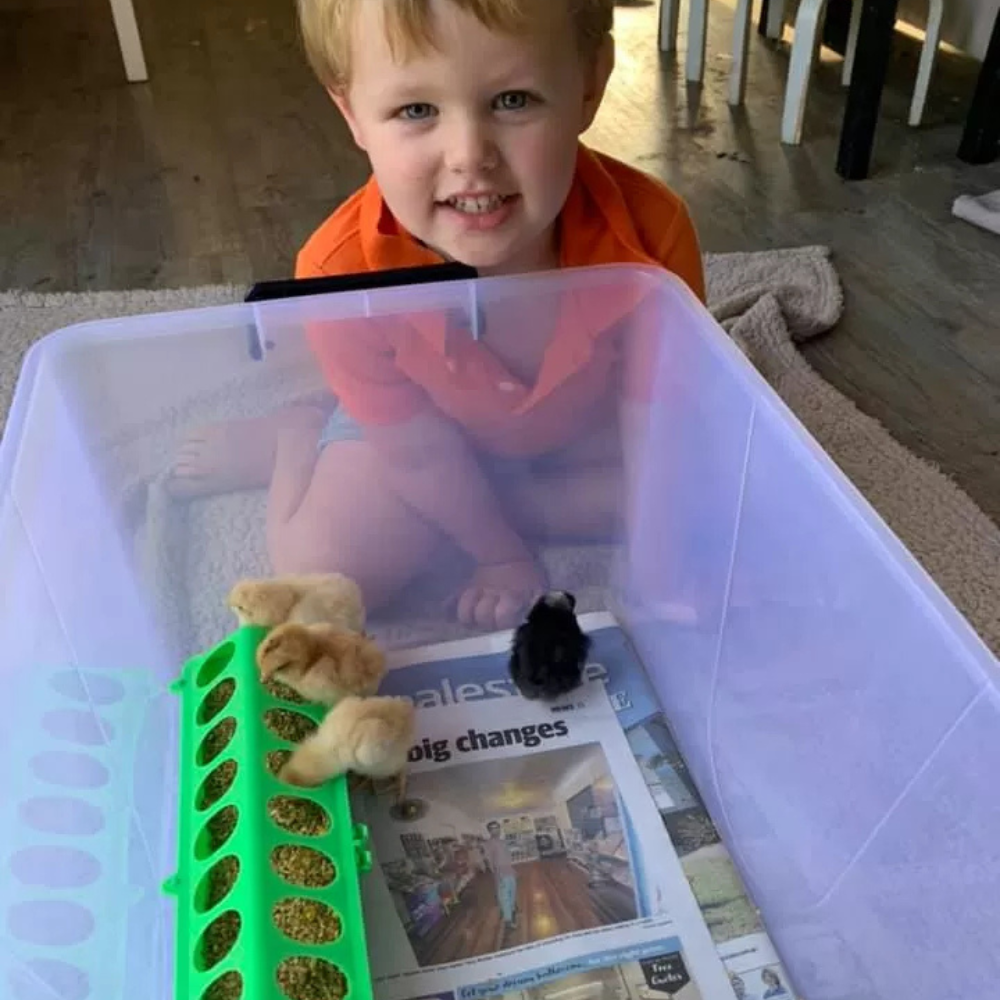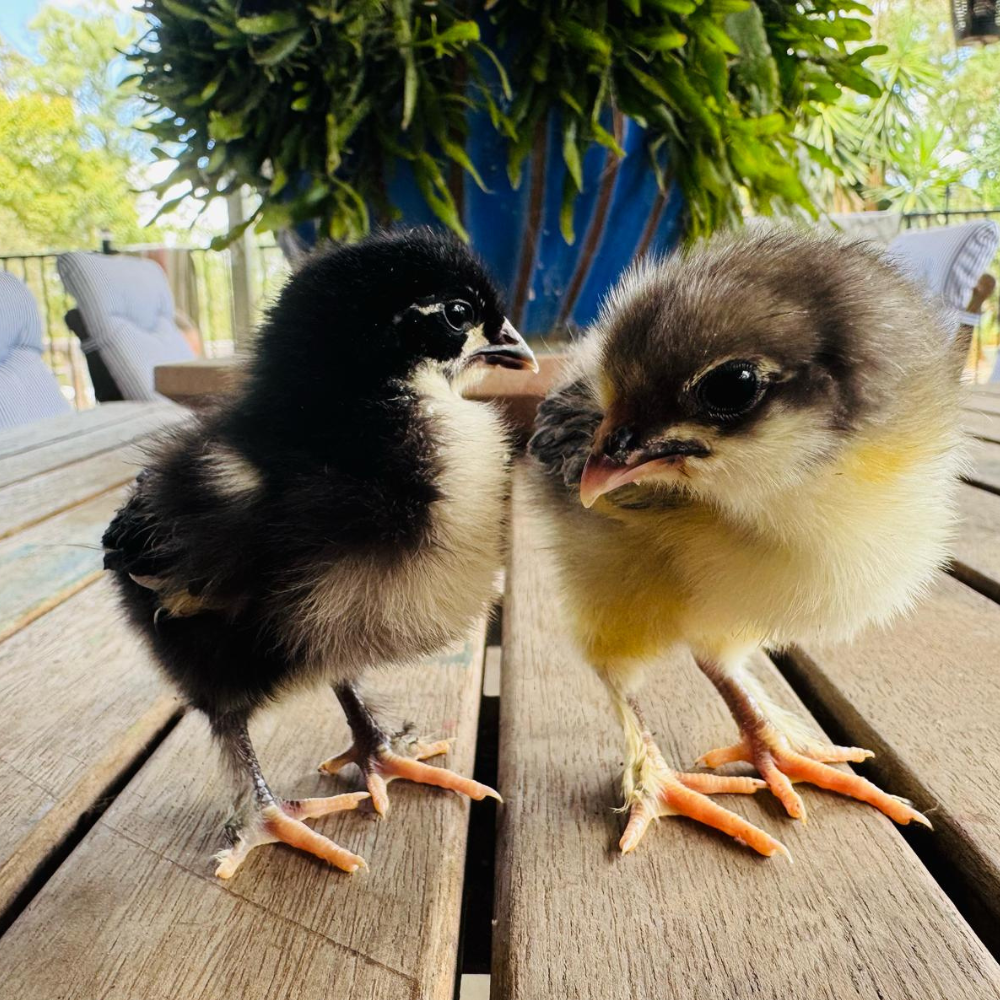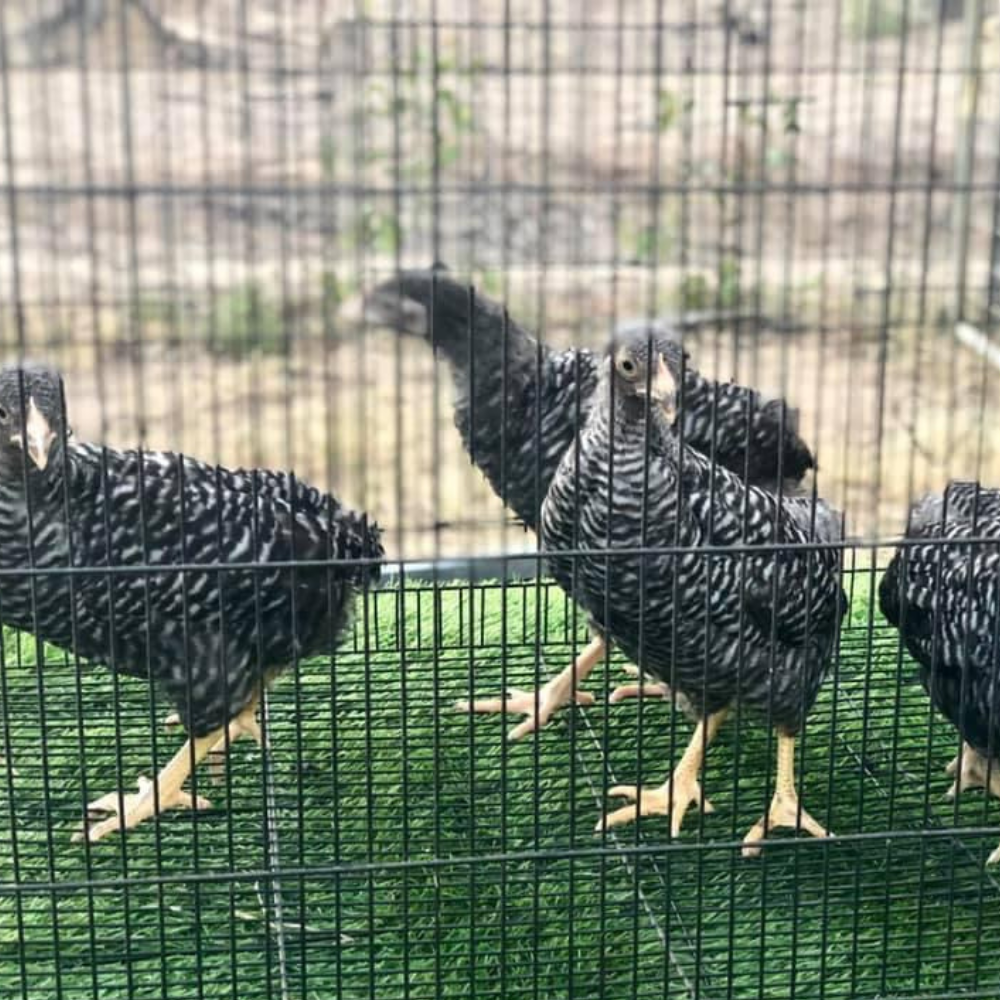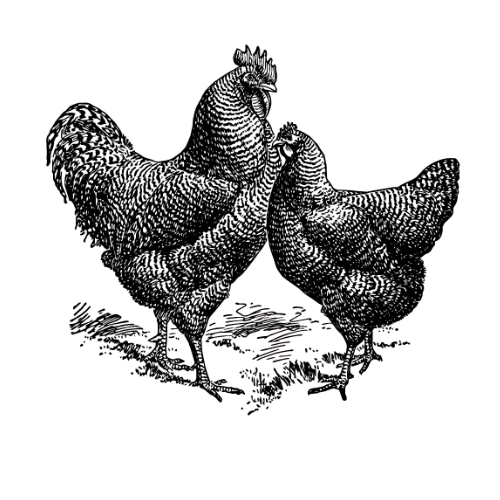Guide to Raising Baby Chicks (Day Old to 8 weeks Old)
Raising baby chicks requires careful attention to their environment, nutrition and overall health. Follow this guide to ensure your chicks grow into strong, healthy birds
30+ Heritage Breeds Available
Delivery to Toowoomba, Gold Coast, Brisbane & Beyond
Ethically Raised, Quality Chickens for Sale

Week 1: Setting Up the Brooder
Temperature
Keep the brooder at 35°C for the first week, reducing by 35°C each week.
Brooder Setup
Use a heat lamp or heating plate, and ensure the space is draft-free with proper ventilation.
Bedding
Use pine shavings or puppy training pads (avoid cedar shavings).
Food & Water
Provide medicated chick starter feed (20-24% protein) and fresh, clean water. Use a shallow water dish to prevent drowning.
Health Checks
Look for active, alert chicks and monitor for pasty butt (feces stuck to vent, which should be gently cleaned with warm water if needed).
Weeks 2-4: Growing and Developing
Temperature
Keep the brooder at 35°C for the first week, reducing by 5°F each week.
Feeding
Continue with medicated chick starter feed. Begin introducing small amounts of treats like mealworm, grated vegtables.
Space Activity
Increase space in the brooder as they grow. Introduce perches for early roosting behaviour.
Health Monitoring
Observe for signs of illness such as lethargy or unusual droppings.


Weeks 5-6: Preparing for Outdoor Transition
Temperature
By week 6, the brooder temperature should match room temperature (around 21°C or warmer if outdoors).
Diet
Continue medicated chick starter feed and ensure access to fresh water at all times.
Exploration
Allow supervised outdoor time on warm, sunny days in a secure enclosure.
Feathering
Chicks should be mostly feathered by week 6, preparing them for the transition outside.
Weeks 7-8: Transitioning to the Coop
Move to Coop
If fully feathered and nighttime temperatures are above 10°C, chicks can be moved outside.
Feed Change
Continue medicated chick starter feed until 8 weeks, then transition to a pullet grower feed (16-18% protein).
Integration
If introducing to older chickens, do so gradually using a partitioned space to allow adjustment.
Safety
Ensure the coop is predator-proof and has proper ventilation, roosting bars, and nesting areas.


Additional Tips:
Keep food and water clean at all times.
Avoid handling chicks excessively in the first few weeks to prevent stress.
Monitor their behavior – chicks that huddle together are too cold, while chicks spread far apart may be too hot.
By following these steps, your chicks will grow into healthy, happy adult chickens ready for their new
